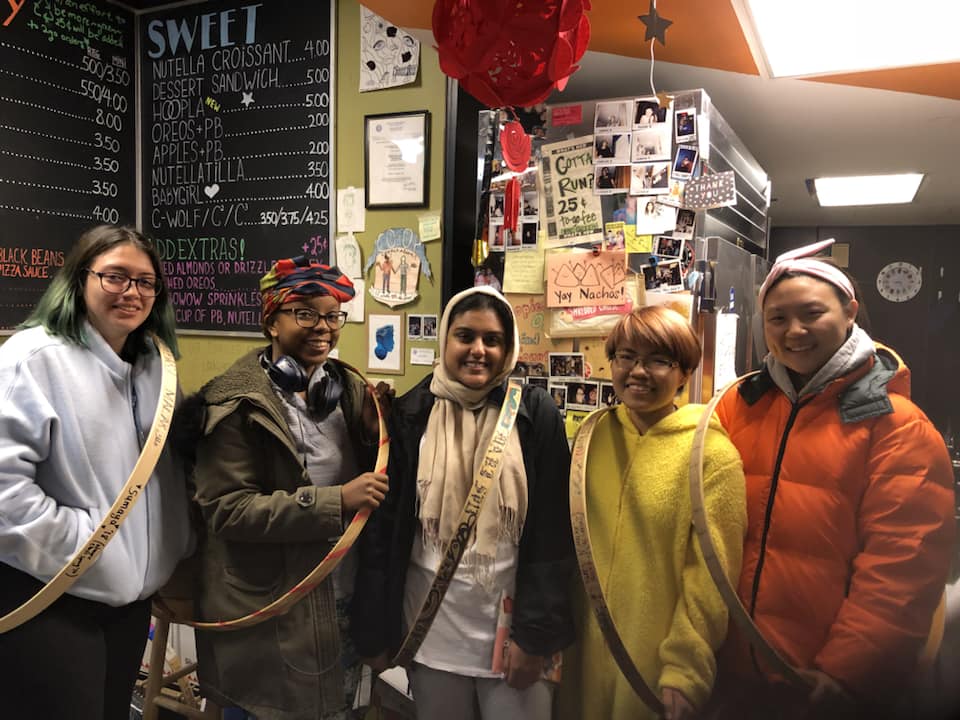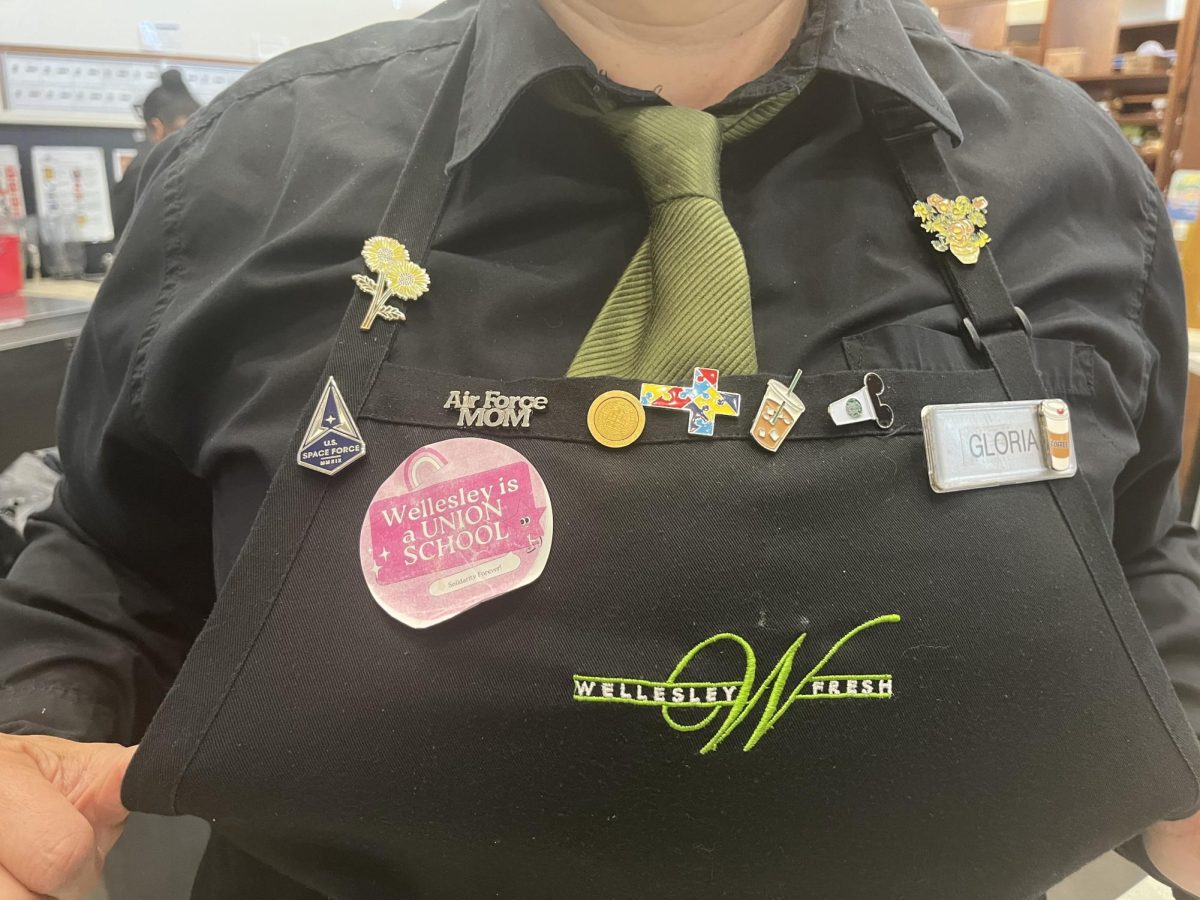This week, two more organizations on campus implemented Safer Space policies. Those organizations, Café Hoop and Regeneration Student Farm, have both signed on to versions of a policy that was created last year by a group of members of the Class of 2018, including alumni Marley Forest and Nina-Marie Amadeo. Safer Space Policies at Wellesley were introduced last year, after a draft created by Lydia Guterman ‘18, Emily Johnston ‘18, and Marley Forest ‘18.
Safer Space Policies are created to help student organizations be as welcoming as possible, and to deal with conflicts between organization members as productively as possible. Café Hoop and Regeneration both emailed their Safer Space Policies out to the entire school, as an attempt to foster accountability.
Many other organizations on campus have Safer Space Policies — WZLY and El Table have both adopted them already, as have some societies. Society Zeta Alpha does have a Safer Space Policy, although it is not public to the entire school and is instead just shared with society members. The Shakespeare Society, according to member Rachel Hodes ‘21, is also working on implementing a Safer Space policy, though they do not have one yet.
Hodes is also the General Member Advocate for WZLY, who is the person that receives complaints against members if any such complaints arise. Then, as complies with the Safer Space Policy, Hodes carries those complaints, anonymously, to the executive board of the radio station.
“If somebody in ZLY has an issue with somebody else in the org, that they can go to either me, or the secretary who’s a member of eboard. If they choose to go to the secretary, then the secretary will make it anonymous and bring it to eboard,” they said. “There’s a meeting with the responding person that they’re concerned about, then there’s a deliberation process to decide what the consequences are, and throughout all of this the reporting person’s safety is supposed to be the priority.”
Prioritizing the safety of people who come forward with accusations of mistreatment by another member is a common thread throughout these Safer Space Policies. Marielos Calderón, co-Financial Manager of the Hoop, explained them as a way of counteracting institutional avenues of reporting abuse that are often more punitive to the person reporting the abuse than to their abuser.
“I feel like, a lot of institutions, it’s like — a lot of the institutional ways in which you report are very pressing on people, very intimidating, so this was just a way to create something that wasn’t too formal, but that could also start a process of opening a conversation, and having mediators, and things like that,” Calderón said. Hodes agrees that policies like this give student spaces a way of self-regulating. “I think it’s important just because that lets these spaces, that are supposed to be community spaces, be spaces where anyone can be comfortable in them,” they said. “If you didn’t have the ability to remove or sanction members who weren’t acting within the confines of these community policies and norms, then it would be hard to have this space be safe.”
So far, however, Hodes has not had to sanction any member through the official processes with the e-board of WZLY. “There’s a caveat that says that if someone brings a concern to me either not on their own behalf, or they don’t want to take action, I’m allowed to provide them with various resources, like Title IX,” they said. “So I’ve had a situation like that, where I’ve been providing resources, and advice, but I haven’t had to go through the official process.” In addition, Hodes said, they have been advertising their presence within the co-op consistently, so they believe that anyone who had a concern would know to come to them.
At Cafe Hoop, Calderón said, the implementation of the policy was brought on after an incident in which a customer said that a Hoopie made them feel unsafe. “I can’t really say explicitly what happened, but it was just a concern that a customer brought that they did not feel safe at the Hoop for a specific reason,” she said. “And we took that really to heart, because we want to be a safe space, not only for everyone on campus, but especially to QTPOC students, because I believe that that’s what the Hoop stands for. So it was just that this person, they told us they would come often but recently stopped going because they didn’t feel safe. And we wanted everyone to feel safe, so we felt that this was very important to start.”
Regeneration Student Farm, who sent out their Safer Space Policy to the college via email last week, said that they chose to adopt it in the wake of a large membership increase as a preventive measure in case any conflicts were ever to arise within the organization. Isabelle Raposo ‘19, co-president of Regen, said that “[Regen has] a policy in case something happens … I’ve been part of an improvised eboard handling of a bad situation in the past and it was not great. We like to think of our org as very close, and friendly, and where nothing bad could ever happen, but if it did, we want to be ready.” At Regen, Raposo adds, the policy serves as a reminder to executive board members to be cognizant of members’ religious and dietary restrictions.
“Having this policy be something eboard looks at every semester in the future could just help prompt people who are scheduling events or planning events to remember those things if they aren’t part of their daily life,” Raposo said. “So our hope is … that the main moments this policy comes into action will be smaller things like that, prophylactic – type measures, rather than a serious complaint that we need to Handle with a capital H, and also that this can keep things from becoming big problems before they start.”






